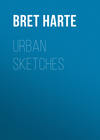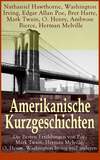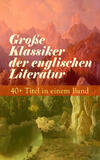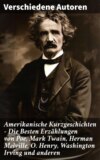Buch lesen: «Urban Sketches», Seite 6
Our house on Laura Matilda Street looked somewhat like a toy Swiss Cottage,—a style of architecture so prevalent, that in walking down the block it was quite difficult to resist an impression of fresh glue and pine shavings. The few shade-trees might have belonged originally to those oval Christmas boxes which contain toy villages; and even the people who sat by the windows had a stiffness that made them appear surprisingly unreal and artificial. A little dog belonging to a neighbor was known to the members of my household by the name of “Glass,” from the general suggestion he gave of having been spun of that article. Perhaps I have somewhat exaggerated these illustrations of the dapper nicety of our neighborhood,—a neatness and conciseness which I think have a general tendency to belittle, dwarf, and contract their objects. For we gradually fell into small ways and narrow ideas, and to some extent squared the round world outside to the correct angles of Laura Matilda Street.
One reason for this insincere quality may have been the fact that the very foundations of our neighborhood were artificial. Laura Matilda Street was “made ground.” The land, not yet quite reclaimed, was continually struggling with its old enemy. We had not been long in our new home before we found an older tenant, not yet wholly divested of his rights, who sometimes showed himself in clammy perspiration on the basement walls, whose damp breath chilled our dining-room, and in the night struck a mortal chilliness through the house. There were no patent fastenings that could keep him out,—no writ of unlawful detainer that could eject him. In the winter his presence was quite palpable; he sapped the roots of the trees, he gurgled under the kitchen floor, he wrought an unwholesome greenness on the side of the veranda. In summer he became invisible, but still exercised a familiar influence over the locality. He planted little stitches in the small of the back, sought out old aches and weak joints, and sportively punched the tenants of the Swiss Cottage under the ribs. He inveigled little children to play with him, but his plays generally ended in scarlet fever, diphtheria, whooping-cough, and measles. He sometimes followed strong men about until they sickened suddenly and took to their beds. But he kept the green-plants in good order, and was very fond of verdure, bestowing it even upon lath and plaster and soulless stone. He was generally invisible, as I have said; but some time after I had moved, I saw him one morning from the hill stretching his gray wings over the valley, like some fabulous vampire, who had spent the night sucking the wholesome juices of the sleepers below, and was sluggish from the effects of his repast. It was then that I recognized him as Malaria, and knew his abode to be the dread Valley of the shadow of Miasma,—miscalled the Happy Valley!
On week days there was a pleasant melody of boiler-making from the foundries, and the gas works in the vicinity sometimes lent a mild perfume to the breeze. Our street was usually quiet, however,—a footfall being sufficient to draw the inhabitants to their front windows, and to oblige an incautious trespasser to run the gauntlet of batteries of blue and black eyes on either side of the way. A carriage passing through it communicated a singular thrill to the floors, and caused the china on the dining-table to rattle. Although we were comparatively free from the prevailing winds, wandering gusts sometimes got bewildered and strayed unconsciously into our street, and finding an unencumbered field, incontinently set up a shriek of joy, and went gleefully to work on the clothes-lines and chimney-pots, and had a good time generally until they were quite exhausted. I have a very vivid picture in my memory of an organ-grinder who was at one time blown into the end of our street, and actually blown through it in spite of several ineffectual efforts to come to a stand before the different dwellings, but who was finally whirled out of the other extremity, still playing and vainly endeavoring to pursue his unhallowed calling. But these were noteworthy exceptions to the calm and even tenor of our life.
There was contiguity but not much sociability in our neighborhood. From my bedroom window I could plainly distinguish the peculiar kind of victuals spread on my neighbor’s dining-table; while, on the other hand, he obtained an equally uninterrupted view of the mysteries of my toilet. Still, that “low vice, curiosity,” was regulated by certain laws, and a kind of rude chivalry invested our observation. A pretty girl, whose bedroom window was the cynosure of neighboring eyes, was once brought under the focus of an opera-glass in the hands of one of our ingenuous youth; but this act met such prompt and universal condemnation, as an unmanly advantage, from the lips of married men and bachelors who didn’t own opera-glasses, that it was never repeated.
With this brief sketch I conclude my record of the neighborhoods I have moved from. I have moved from many others since then, but they have generally presented features not dissimilar to the three I have endeavored to describe in these pages. I offer them as types containing the salient peculiarities of all. Let no inconsiderate reader rashly move on account of them. My experience has not been cheaply bought. From the nettle Change I have tried to pluck the flower Security. Draymen have grown rich at my expense. House-agents have known me and were glad, and landlords have risen up to meet me from afar. The force of habit impels me still to consult all the bills I see in the streets, nor can the war telegrams divert my first attention from the advertising columns of the daily papers. I repeat, let no man think I have disclosed the weaknesses of the neighborhood, nor rashly open that closet which contains the secret skeleton of his dwelling. My carpets have been altered to fit all sized odd-shaped apartments from parallelopiped to hexagons. Much of my furniture has been distributed among my former dwellings. These limbs have stretched upon uncarpeted floors, or have been let down suddenly from imperfectly established bedsteads. I have dined in the parlor and slept in the back kitchen. Yet the result of these sacrifices and trials may be briefly summed up in the statement that I am now on the eve of removal from my PRESENT NEIGHBORHOOD.
MY SUBURBAN RESIDENCE
I live in the suburbs. My residence, to quote the pleasing fiction of the advertisement, “is within fifteen minutes’ walk of the City Hall.” Why the City Hall should be considered as an eligible terminus of anybody’s walk, under any circumstances, I have not been able to determine. Never having walked from my residence to that place, I am unable to verify the assertion, though I may state as a purely abstract and separate proposition, that it takes me the better part of an hour to reach Montgomery Street.
My selection of locality was a compromise between my wife’s desire to go into the country, and my own predilections for civic habitation. Like most compromises, it ended in retaining the objectionable features of both propositions; I procured the inconveniences of the country without losing the discomforts of the city. I increased my distance from the butcher and green-grocer, without approximating to herds and kitchen-gardens. But I anticipate.
Fresh air was to be the principal thing sought for. That there might be too much of this did not enter into my calculations. The first day I entered my residence, it blew; the second day was windy; the third, fresh, with a strong breeze stirring; on the fourth, it blew; on the fifth, there was a gale, which has continued to the present writing.
That the air is fresh, the above statement sufficiently establishes. That it is bracing, I argue from the fact that I find it impossible to open the shutters on the windward side of the house. That it is healthy, I am also convinced, believing that there is no other force in Nature that could so buffet and ill-use a person without serious injury to him. Let me offer an instance. The path to my door crosses a slight eminence. The unconscious visitor, a little exhausted by the ascent and the general effects of the gentle gales which he has faced in approaching my hospitable mansion, relaxes his efforts, smooths his brow, and approaches with a fascinating smile. Rash and too confident man! The wind delivers a succession of rapid blows, and he is thrown back. He staggers up again, in the language of the P. R., “smiling and confident.” The wind now makes for a vulnerable point, and gets his hat in chancery. All ceremony is now thrown away; the luckless wretch seizes his hat with both hands, and charges madly at the front door. Inch by inch, the wind contests the ground; another struggle, and he stands upon the veranda. On such occasions I make it a point to open the door myself, with a calmness and serenity that shall offer a marked contrast to his feverish and excited air, and shall throw suspicion of inebriety upon him. If he be inclined to timidity and bashfulness, during the best of the evening he is all too conscious of the disarrangement of his hair and cravat. If he is less sensitive, the result is often more distressing. A valued elderly friend once called upon me after undergoing a twofold struggle with the wind and a large Newfoundland dog (which I keep for reasons hereinafter stated), and not only his hat, but his wig, had suffered. He spent the evening with me, totally unconscious of the fact that his hair presented the singular spectacle of having been parted diagonally from the right temple to the left ear. When ladies called, my wife preferred to receive them. They were generally hysterical, and often in tears. I remember, one Sunday, to have been startled by what appeared to be the balloon from Hayes Valley drifting rapidly past my conservatory, closely followed by the Newfoundland dog. I rushed to the front door, but was anticipated by my wife. A strange lady appeared at lunch, but the phenomenon remained otherwise unaccounted for. Egress from my residence is much more easy. My guests seldom “stand upon the order of their going, but go at once”; the Newfoundland dog playfully harassing their rear. I was standing one day, with my hand on the open hall door, in serious conversation with the minister of the parish, when the back door was cautiously opened. The watchful breeze seized the opportunity, and charged through the defenceless passage. The front door closed violently in the middle of a sentence, precipitating the reverend gentleman into the garden. The Newfoundland dog, with that sagacity for which his race is so distinguished, at once concluded that a personal collision had taken place between myself and visitor, and flew to my defence. The reverend gentleman never called again.
The Newfoundland dog above alluded to was part of a system of protection which my suburban home once required. Robberies were frequent in the neighborhood, and my only fowl fell a victim to the spoiler’s art. One night I awoke, and found a man in my room. With singular delicacy and respect for the feelings of others, he had been careful not to awaken any of the sleepers, and retired upon my rising, without waiting for any suggestion. Touched by his delicacy, I forbore giving the alarm until after he had made good his retreat. I then wanted to go after a policeman, but my wife remonstrated, as this would leave the house exposed. Remembering the gentlemanly conduct of the burglar, I suggested the plan of following him and requesting him to give the alarm as he went in town. But this proposition was received with equal disfavor. The next day I procured a dog and a revolver. The former went off, but the latter wouldn’t. I then got a new dog and chained him, and a duelling pistol, with a hair-trigger. The result was so far satisfactory that neither could be approached with safety, and for some time I left them out, indifferently, during the night. But the chain one day gave way, and the dog, evidently having no other attachment to the house, took the opportunity to leave. His place was soon filled by the Newfoundland, whose fidelity and sagacity I have just recorded.
Space is one of the desirable features of my suburban residence. I do not know the number of acres the grounds contain except from the inordinate quantity of hose required for irrigating. I perform daily, like some gentle shepherd, upon a quarter-inch pipe without any visible result, and have had serious thoughts of contracting with some disbanded fire company for their hose and equipments. It is quite a walk to the wood-house. Every day some new feature of the grounds is discovered. My youngest boy was one day missing for several hours. His head—a peculiarly venerable and striking object—was at last discovered just above the grass at some distance from the house. On examination he was found comfortably seated in a disused drain, in company with a silver spoon and a dead rat. On being removed from this locality he howled dismally and refused to be comforted.
The view from my suburban residence is fine. Lone Mountain, with its white obelisks, is a suggestive if not cheering termination of the vista in one direction, while the old receiving vault of Yerba Buena Cemetery limits the view in another. Most of the funerals which take place pass my house. My children, with the charming imitativeness that belongs to youth, have caught the spirit of these passing corteges, and reproduce in the back yard, with creditable skill, the salient features of the lugubrious procession. A doll, from whose features all traces of vitality and expression have been removed, represents the deceased. Yet unfortunately I have been obliged to promise them more active participation in this ceremony at some future time, and I fear that they look anxiously forward with the glowing impatience of youth to the speedy removal of some one of my circle of friends. I am told that the eldest, with the unsophisticated frankness that belongs to his age, made a personal request to that effect to one of my acquaintances. One singular result of the frequency of these funerals is the development of a critical and fastidious taste in such matters on the part of myself and family. If I may so express myself, without irreverence, we seldom turn out for anything less than six carriages. Any number over this is usually breathlessly announced by Bridget as, “Here’s another, mum,—and a good long one.”
With these slight drawbacks my suburban residence is charming. To the serious poet, and writer of elegiac verses, the aspect of Nature, viewed from my veranda, is suggestive. I myself have experienced moments when the “sad mechanic exercise” of verse would have been of infinite relief. The following stanzas, by a young friend who has been stopping with me for the benefit of his health, addressed to a duck that frequented a small pond in the vicinity of my mansion, may be worthy of perusal. I think I have met the idea conveyed in the first verse in some of Hood’s prose, but as my friend assures me that Hood was too conscientious to appropriate anything not his own, I conclude I am mistaken.
LINES TO A WATER-FOWL
(Intra Muros.)
I
Fowl, that sing’st in yonder pool,
Where the summer winds blow cool,
Are there hydropathic cures
For the ills that man endures?
Know’st thou Priessnitz?
What? alack
Hast no other word but “Quack?”
II
Cleopatra’s barge might pale
To the splendors of thy tail,
Or the stately caravel
Of some “high-pooped admiral.”
Never yet left such a wake
E’en the navigator Drake!
III
Dux thou art, and leader, too,
Heeding not what’s “falling due,”
Knowing not of debt or dun,—
Thou dost heed no bill but one;
And, though scarce conceivable,
That’s a bill Receivable,
Made—that thou thy stars mightst thank—
Payable at the next bank.




















